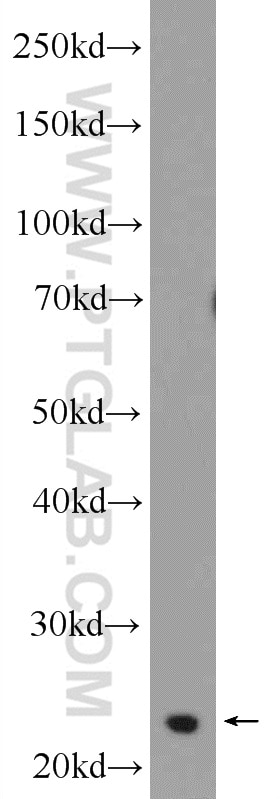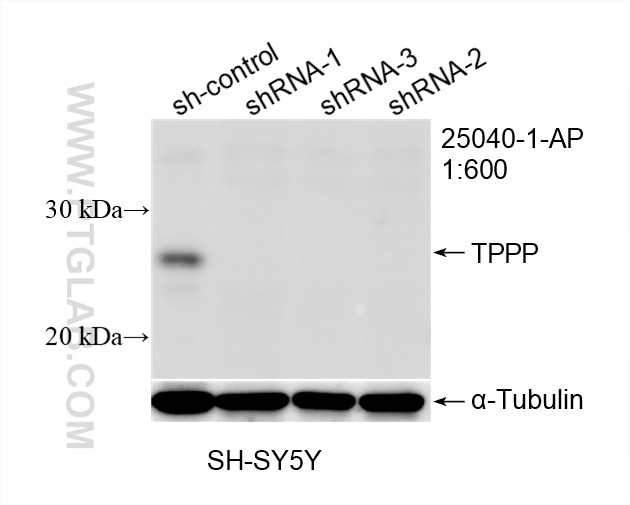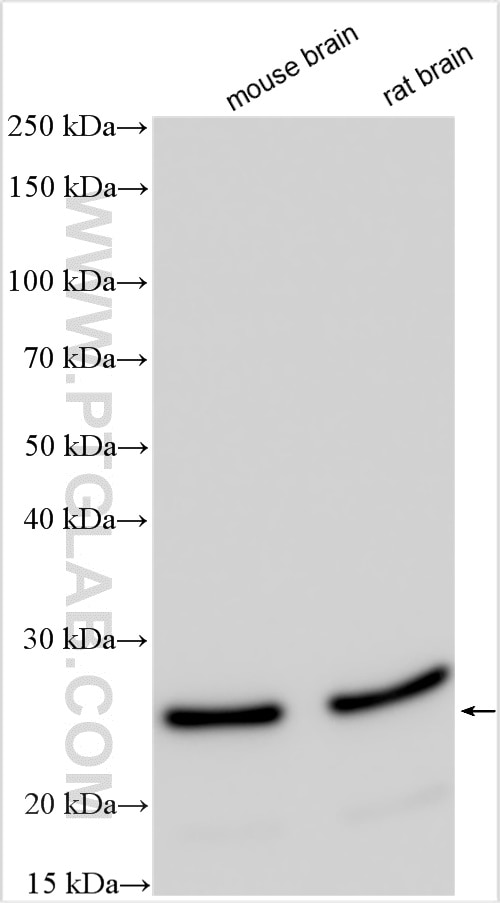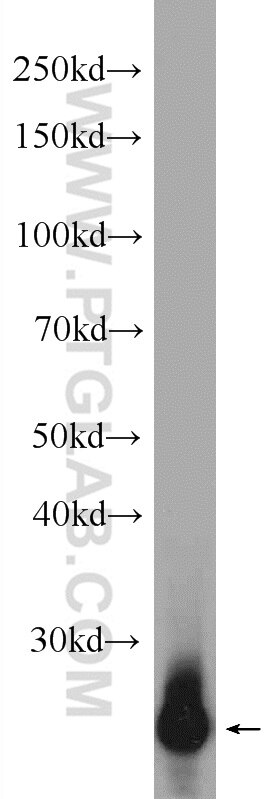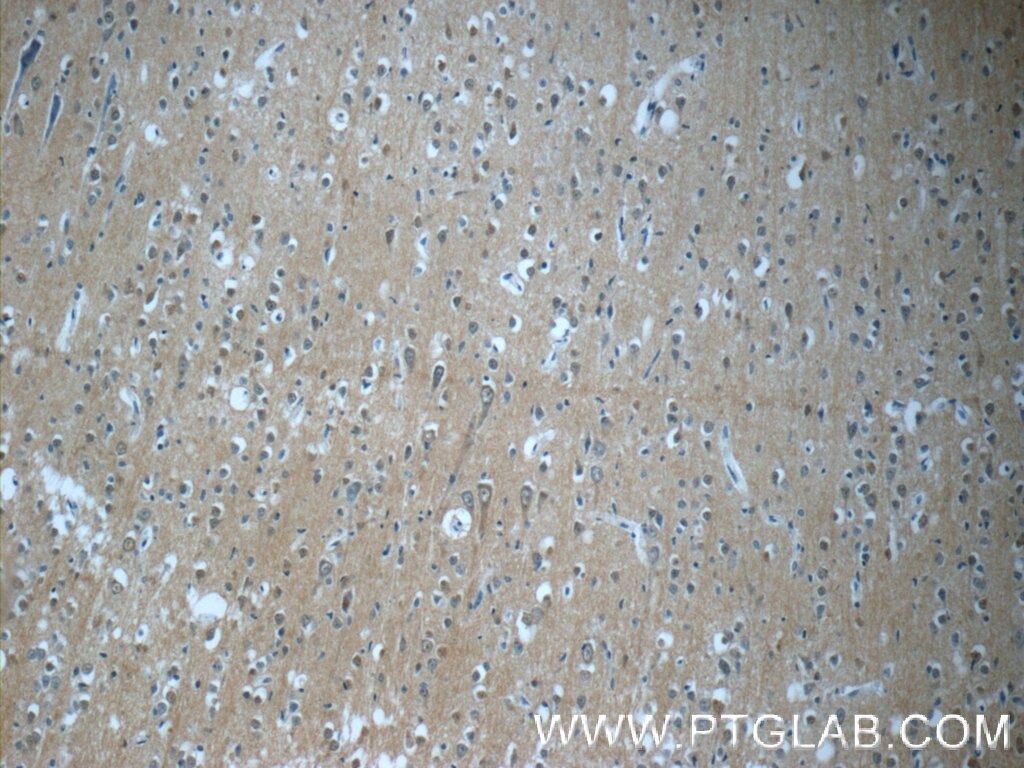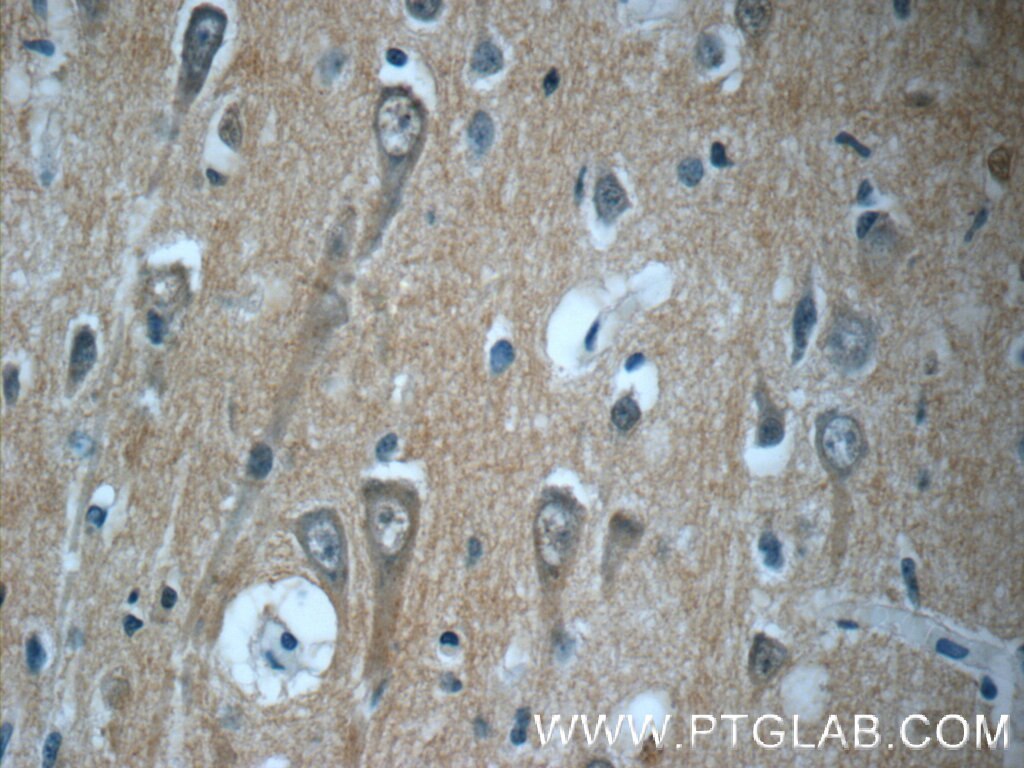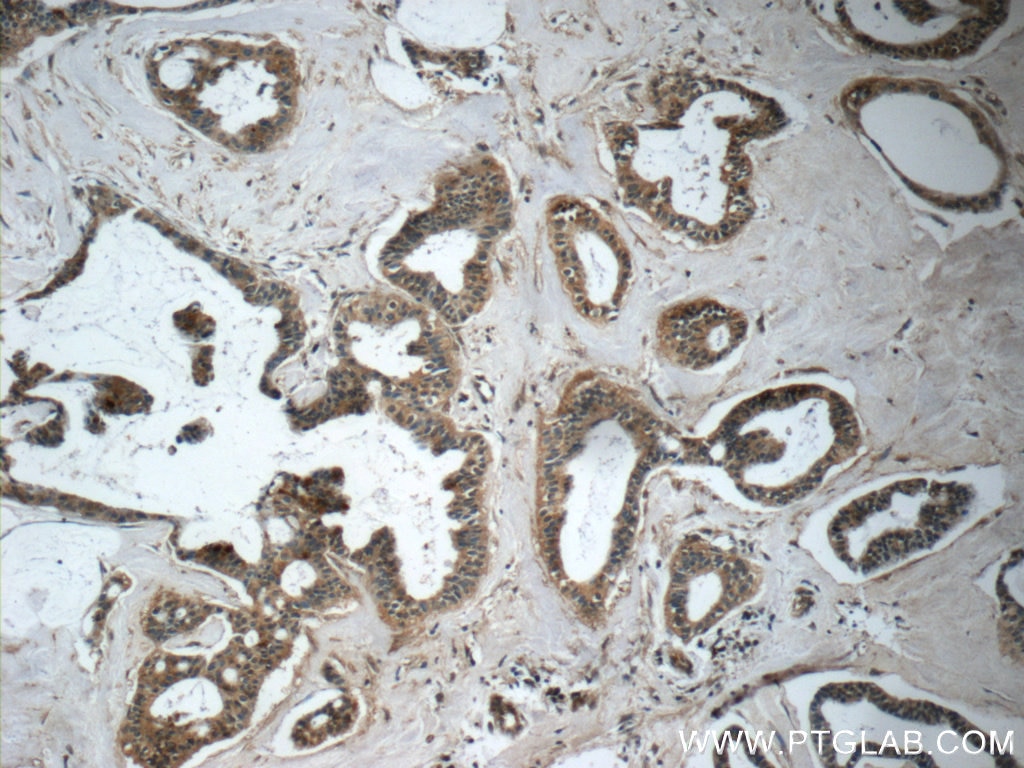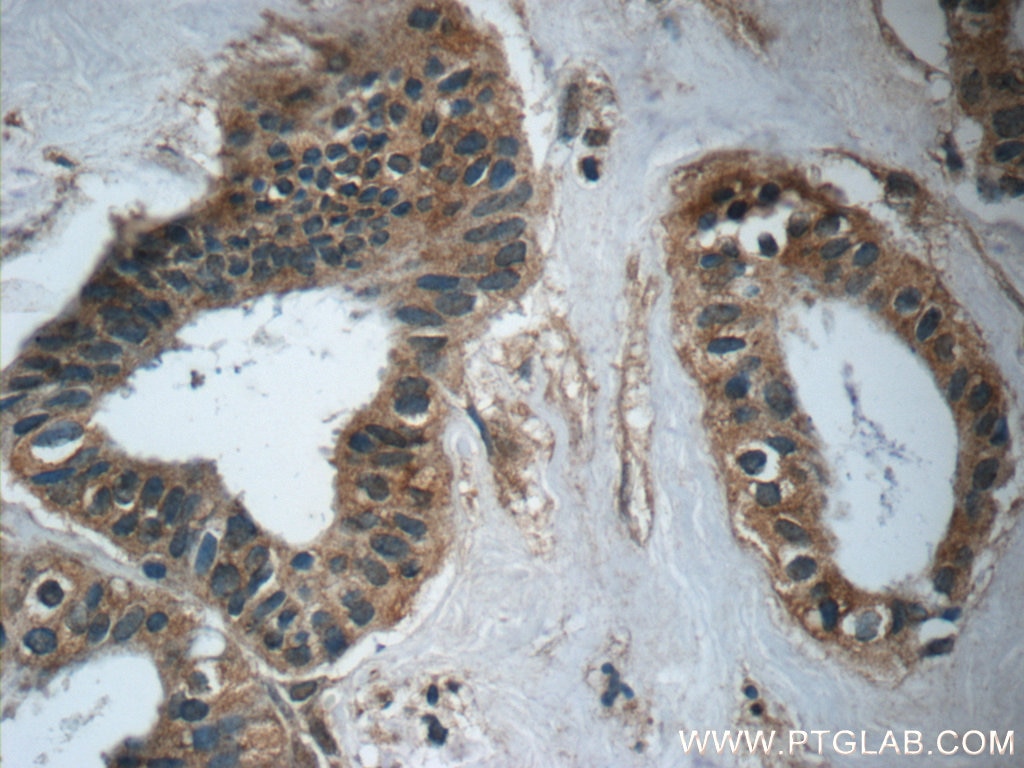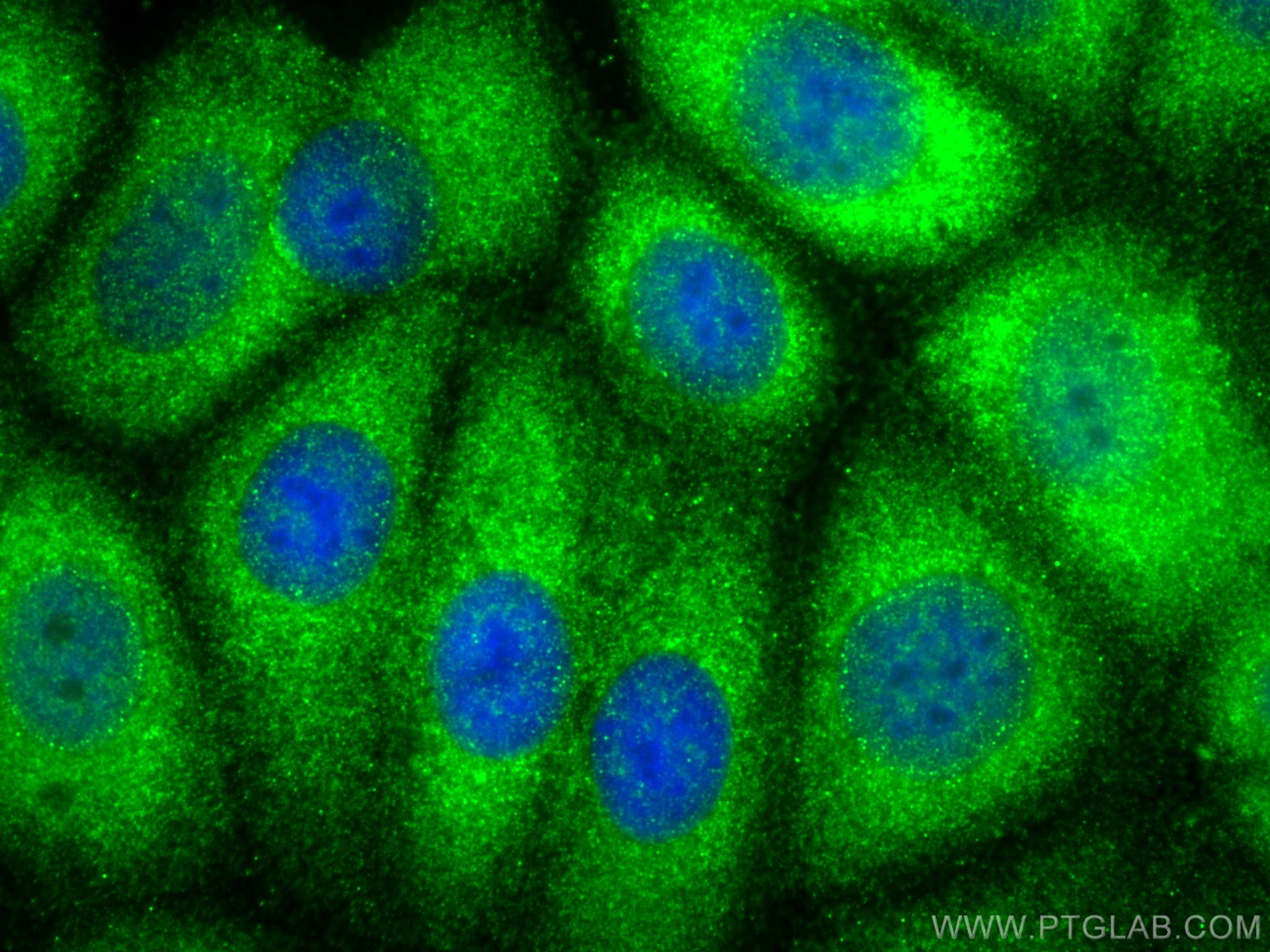Tested Applications
| Positive WB detected in | mouse brain tissue, MCF-7 cells, rat brain tissue |
| Positive IHC detected in | human brain tissue, human breast cancer tissue Note: suggested antigen retrieval with TE buffer pH 9.0; (*) Alternatively, antigen retrieval may be performed with citrate buffer pH 6.0 |
| Positive IF/ICC detected in | MCF-7 cells |
Recommended dilution
| Application | Dilution |
|---|---|
| Western Blot (WB) | WB : 1:5000-1:50000 |
| Immunohistochemistry (IHC) | IHC : 1:20-1:200 |
| Immunofluorescence (IF)/ICC | IF/ICC : 1:200-1:800 |
| It is recommended that this reagent should be titrated in each testing system to obtain optimal results. | |
| Sample-dependent, Check data in validation data gallery. | |
Product Information
25040-1-AP targets TPPP in WB, IHC, IF/ICC, ELISA applications and shows reactivity with human, mouse, rat samples.
| Tested Reactivity | human, mouse, rat |
| Host / Isotype | Rabbit / IgG |
| Class | Polyclonal |
| Type | Antibody |
| Immunogen | TPPP fusion protein Ag19159 Predict reactive species |
| Full Name | tubulin polymerization promoting protein |
| Calculated Molecular Weight | 219 aa, 24 kDa |
| Observed Molecular Weight | 24-29 kDa |
| GenBank Accession Number | BC131506 |
| Gene Symbol | TPPP |
| Gene ID (NCBI) | 11076 |
| RRID | AB_2879865 |
| Conjugate | Unconjugated |
| Form | Liquid |
| Purification Method | Antigen affinity purification |
| UNIPROT ID | O94811 |
| Storage Buffer | PBS with 0.02% sodium azide and 50% glycerol pH 7.3. |
| Storage Conditions | Store at -20°C. Stable for one year after shipment. Aliquoting is unnecessary for -20oC storage. 20ul sizes contain 0.1% BSA. |
Protocols
| Product Specific Protocols | |
|---|---|
| WB protocol for TPPP antibody 25040-1-AP | Download protocol |
| IHC protocol for TPPP antibody 25040-1-AP | Download protocol |
| IF protocol for TPPP antibody 25040-1-AP | Download protocol |
| Standard Protocols | |
|---|---|
| Click here to view our Standard Protocols |
